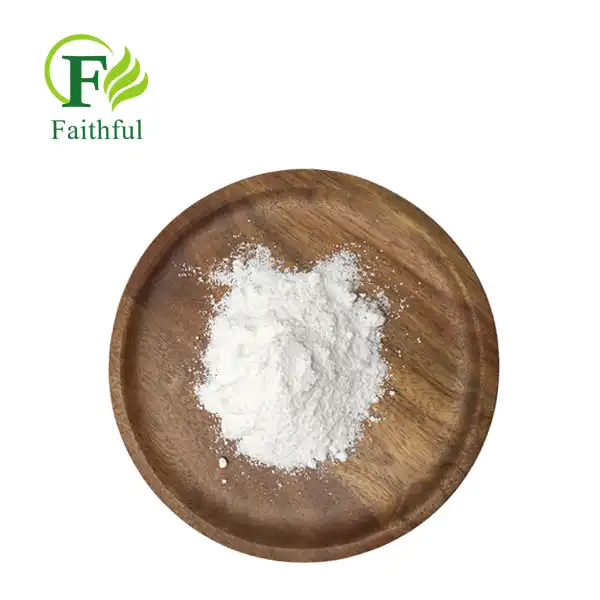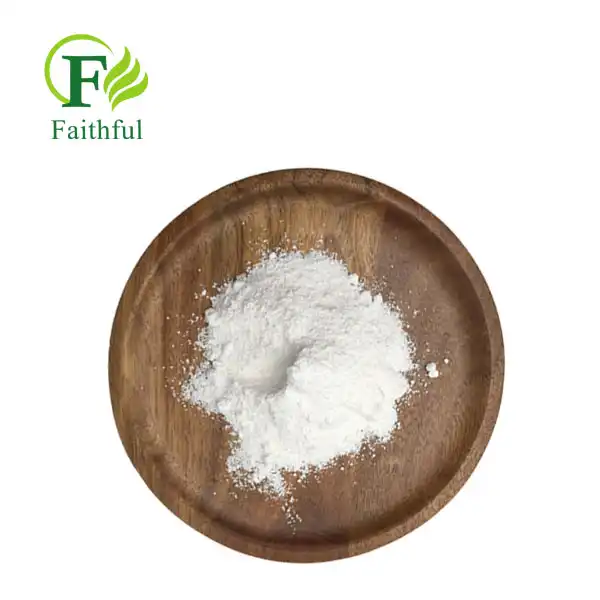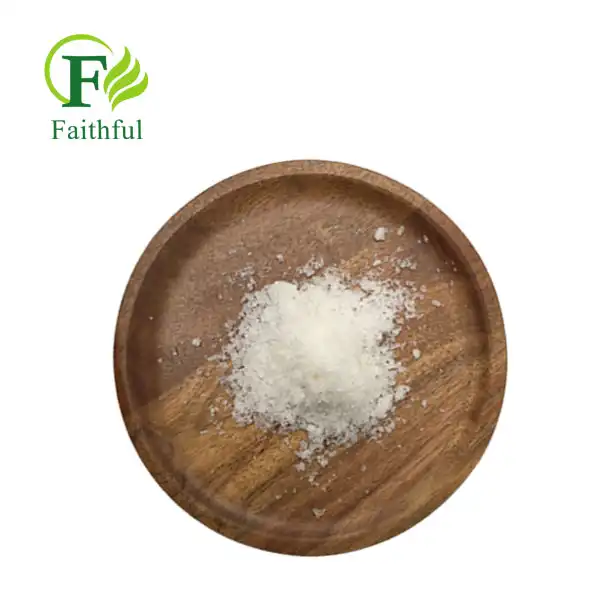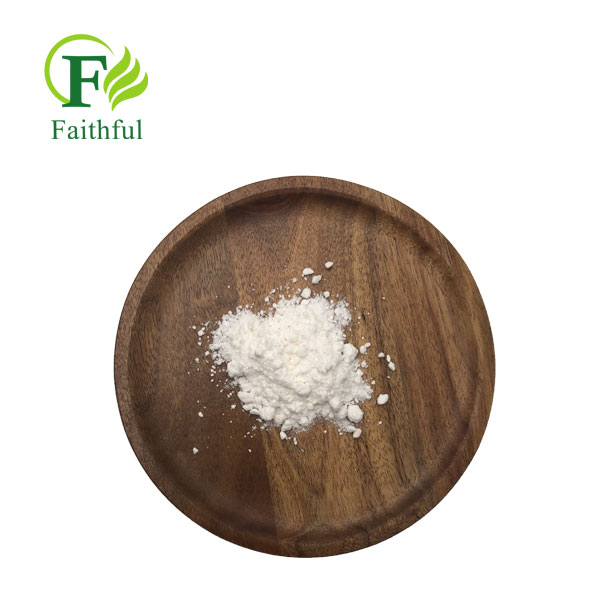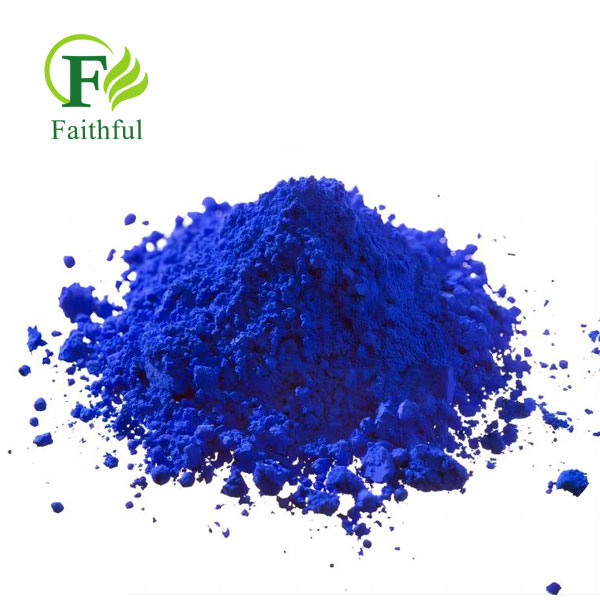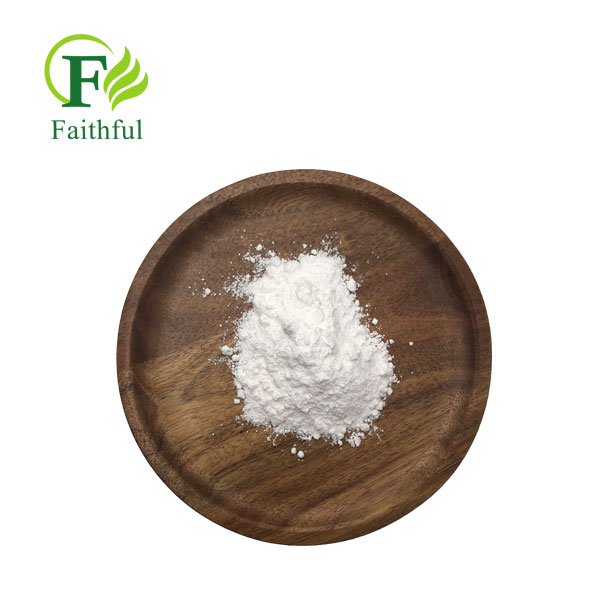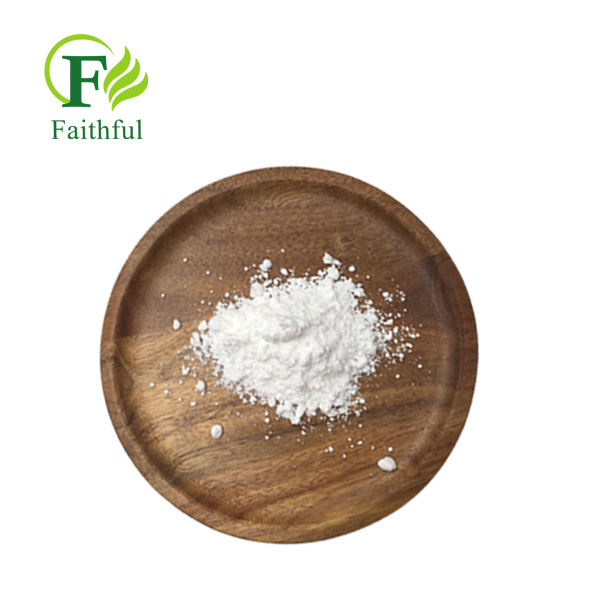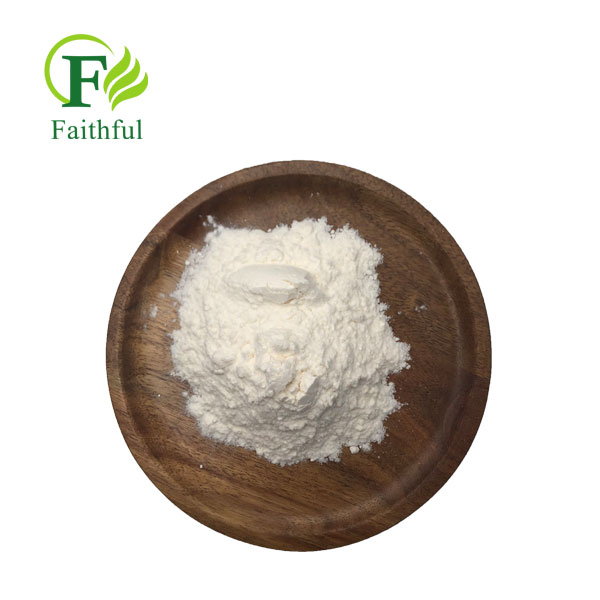Can Phosphatidylserine Powder Boost Your Brain Power?
Some natural compounds, like phospholipids, have shown promise as ways to improve cognitive function. This has led researchers and health fans to look into them. Phosphatidylserine Powder, a phospholipid that naturally occurs and is mostly found in the membranes of brain cells, has received a lot of attention from scientists because of its possible cognitive benefits. Maintaining cell structure, helping neurotransmitters work, and supporting brain health are all very important jobs that this important compound does. High-quality Phosphatidylserine Powder supplements have been shown to help with memory formation, focus, and attention, as well as slow down the cognitive decline that comes with stress. Phosphatidylserine levels in the brain naturally drop with age, so taking supplements becomes more important to keep brain health and performance at its best throughout life.
The Scientific Foundation of Cognitive Enhancement
Membrane Function and Neuronal Health
Maintaining the structural integrity necessary for proper brain function, Phosphatidylserine Powder acts as a basic building block for neural cell membranes. A phospholipid that makes up about 13–15% of all the phospholipids in the brain is mostly found in the inner leaflet of neural membranes, where it helps the membranes move and let things pass through them easily. The compound's special molecular structure lets it connect with membrane proteins, which helps with important tasks like releasing neurotransmitters, binding receptors, and supporting the function of ion channels. Adequate amounts of Phosphatidylserine Powder help keep membrane flexibility, which naturally decreases with age and oxidative stress, according to research. To keep synaptic plasticity, the brain's ability to make new links and change based on learning, this preservation is very important. Using advanced extraction methods in high-quality supplements keeps the natural structure of phosphatidylserine whole, which increases its bioavailability and healing potential for brain health.
Neurotransmitter System Optimization
One of the ways in which Phosphatidylserine Powder improves cognition is by acting on neurotransmitter systems, specifically those that deal with acetylcholine, dopamine, and norepinephrine. For better memory development and learning, this phospholipid boosts the activity of the enzyme that makes acetylcholine: acetylcholinesterase. According to research, taking a high-quality Phosphatidylserine Powder supplement on a regular basis can boost acetylcholine levels by as much as 30%, leading to noticeable enhancements in processing speed and focus. Executive function, motivation, and reward processing are all improved by the chemical's modulation of dopaminergic pathways. Additionally, norepinephrine metabolism is impacted by phosphatidylserine, which helps regulate stress responses and maintain steady brain function under pressure. Phosphatidylserine Powder may be particularly helpful for those seeking a more all-encompassing approach to brain health because, due to its synergistic effects on many neurotransmitter systems, it typically provides comprehensive cognitive gains rather than isolated benefits.
Stress Response and Cortisol Management
Through its capacity to regulate the hypothalamic-pituitary-adrenal (HPA) axis and control cortisol levels, Phosphatidylserine Powder significantly increases brain power. Memory consolidation, concentration, and decision-making skills can all be negatively impacted by prolonged stress and high cortisol levels. Brain tissue is protected from the damaging effects of chronic stress hormones by phosphatidylserine supplementation, which has been demonstrated to reduce cortisol levels by 15–30% following stress exposure. This cortisol-lowering effect, which is particularly apparent in high-stress settings, helps people maintain cognitive flexibility and efficacy when it matters most. Strengthening the negative feedback loops that regulate the synthesis of cortisol, the drug appears to prevent excessive and prolonged release of stress hormones. In athletes and professionals in high-pressure environments, supplementing with Phosphatidylserine Powder has been demonstrated to greatly improve mental clarity, anxiety, and stress resilience during stressful periods.

Clinical Applications and Cognitive Benefits
Memory Enhancement and Learning Capacity
Phosphatidylserine Powder supplementation significantly enhances working memory and long-term retention, according to clinical trials. Learning new information and accessing previously stored knowledge is made easier by the compound's enhancement of both the encoding and retrieval phases of memory formation. Phosphatidylserine supplementation for 12 weeks can increase memory test scores by 20–42% in healthy adults, with considerable improvements in verbal memory and name-face recognition tasks. The effects of high-purity Phosphatidylserine Powder on memory seem to be dose-dependent, with daily dosages of 300–400 mg often producing the best results. These advantages go beyond only improving recall; they also include increased cognitive flexibility and the capacity to use newly acquired knowledge in unfamiliar situations. For academic performance, job productivity, and everyday cognitive tasks, phosphatidylserine supplementation has shown very advantageous for professionals, students, and older persons looking to preserve sharp memory function.
Focus and Attention Improvement
The attention-enhancing properties of Phosphatidylserine Powder make it particularly valuable for individuals struggling with concentration difficulties or those seeking to optimize mental performance. Studies demonstrate that phosphatidylserine supplementation can improve sustained attention by 13-25% and reduce mind-wandering episodes during cognitively demanding tasks. The substance seems to improve selective attention, the brain's capacity to weed out unimportant information while focusing on crucial cues. Phosphatidylserine Powder supplementation is associated with increased activity in prefrontal cortical regions linked to executive attention and cognitive control, according to neuroimaging studies. Real-world advantages of these attentional capacity gains include increased efficiency at work, greater academic achievement, and an improved capacity for multitasking. Properly prepared phosphatidylserine supplements have sustained-release qualities that prevent the peaks and crashes that come with stimulant-based cognitive enhancers and guarantee steady cognitive assistance throughout the day.
Age-Related Cognitive Support
Perhaps the most compelling application of Phosphatidylserine Powder lies in its ability to support cognitive function in aging populations, where natural phospholipid levels decline significantly. Supplementing has been shown to decrease age-related cognitive decline and possibly even reverse some parts of older persons' memory impairment. According to clinical studies conducted on participants 65 and older, using phosphatidylserine supplements for six months can enhance memory function to levels similar to those of people 12 years younger. When it comes to boosting episodic memory—the kind of memory most susceptible to age-related decline—the chemical seems to be especially helpful. Phosphatidylserine Powder supplementation has also been proven to be effective in promoting cognitive performance in people with mild cognitive impairment, possibly delaying the onset of more severe cognitive loss. Promoting healthy brain aging and preserving cognitive vigor in later life are made possible by phosphatidylserine's neuroprotective qualities, which include its capacity to lower neuroinflammation and assist cellular repair mechanisms.
Quality Standards and Manufacturing Excellence
Extraction and Purification Processes
The cognitive benefits of Phosphatidylserine Powder depend critically on the quality of the raw material and the sophistication of extraction processes used in manufacturing. High quantities of active components are achieved while maintaining the compound's native molecular structure through the use of sophisticated extraction procedures in premium phosphatidylserine supplements. Phosphatidylserine is extracted from sunflower lecithin sources using advanced chromatography techniques and enzymatic procedures in modern extraction methods, guaranteeing non-GMO origins and high purity levels. Temperature, pH, and solvent conditions must be carefully regulated during the extraction process to avoid phospholipid structural degradation, which could jeopardize bioactivity and therapeutic efficacy. High-quality producers make investments in cutting-edge machinery that can retain the compound's bioactive form while reaching phosphatidylserine concentrations above 70%. A clean, highly concentrated Phosphatidylserine Powder suited for a variety of applications is produced by rigorously purifying the substance to remove undesired lipids, proteins, and impurities that can obstruct absorption or induce negative reactions.
Stability and Bioavailability Optimization
One of the biggest obstacles in the production of Phosphatidylserine Powder is ensuring maximum stability and bioavailability, which calls for unique formulation methods and protective packaging technologies. Particularly when exposed to light, heat, and moisture, the phospholipid structure is naturally prone to oxidation and deterioration. Phosphatidylserine stability is preserved over the course of the product's shelf life by use of protective encapsulation technologies and antioxidant systems integrated into advanced manufacturing processes. By enclosing individual phosphatidylserine molecules in protective barriers made of natural polymers, microencapsulation techniques improve stability, solubility, and absorption properties. In order to guarantee that Phosphatidylserine Powder retains its cognitive advantages from production to consumption, quality testing procedures assess both chemical stability and biological activity during prolonged storage times. The integrity of the chemical is further protected during distribution and storage by specialized packaging systems that include nitrogen flushing, moisture barriers, and light-resistant materials, ensuring that customers receive medications with the greatest possible therapeutic potential.
Applications Across Industries
Good Phosphatidylserine Powder is used in many fields, from dietary supplements to functional foods and specialty medical uses, because it can be used in many ways and has been shown to be helpful. Phosphatidylserine is an important part of many brain health supplements on the market. It is often mixed with other nootropic compounds to make them work better together. Because the substance is stable and doesn't have a strong taste, it's perfect for adding to functional drinks, nutrition bars, and brain-boosting snacks that you can eat every day to get cognitive benefits. More and more sports nutrition companies are realizing that Phosphatidylserine Powder can help athletes' mental performance. They are making special mixes for athletes who want to improve their reaction times, focus, and ability to handle stress during competition. The anti-aging market has made phosphatidylserine a key ingredient in products that fight cognitive decline linked to getting older, and the new pet nutrition market is looking into how it can help older pets keep their minds healthy. Medical food applications represent a growing area of interest, with specialized formulations designed to support individuals with diagnosed cognitive impairments or those at risk for cognitive decline.
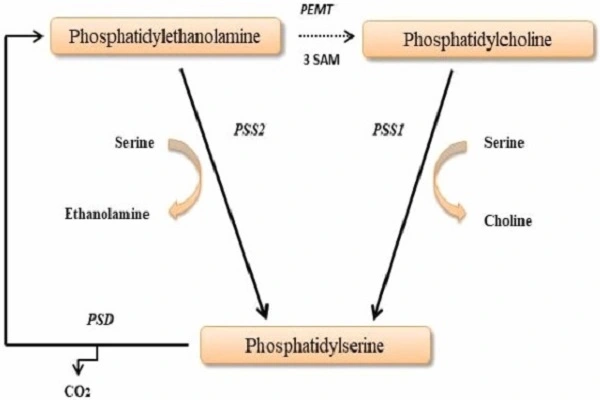
Conclusion
Phosphatidylserine Powder can definitely improve brain power through a number of various processes that work together. This incredible phospholipid has a lot of cognitive benefits that are backed by a lot of clinical proof. It can improve memory and focus, control stress responses, and help you age in a healthy way. For people who want to improve their cognitive performance and keep their brain healthy throughout life, this chemical is very useful because it can improve neurotransmitter function, keep membrane integrity, and protect against age-related decline.
FAQ
1. How quickly can I expect to see cognitive benefits from Phosphatidylserine Powder?
Most individuals begin experiencing noticeable cognitive improvements within 2-4 weeks of consistent Phosphatidylserine Powder supplementation. Memory enhancement and stress management benefits typically appear first, followed by improvements in focus and attention. Maximum cognitive benefits are usually achieved after 8-12 weeks of regular use, as the compound gradually accumulates in brain tissue and optimizes cellular function.
2. What makes sunflower-derived Phosphatidylserine Powder superior to other sources?
When compared to typical bovine sources, Sunflower-derived Phosphatidylserine Powder is safer and more pure, removing any worries about possible impurities while yet offering the same cognitive advantages. Because the non-GMO sunflower extraction method produces improved stability profiles and larger concentrations of active chemicals, it is perfect for a range of formulation applications and guarantees steady therapeutic benefits.
3. Can Phosphatidylserine Powder be combined with other cognitive enhancers?
When used with other nootropic substances, high-quality Phosphatidylserine Powder exhibits exceptional compatibility and frequently has synergistic benefits. Acetyl-L-carnitine, omega-3 fatty acids, and other B vitamins are common combinations that improve cognitive performance and overall brain health through complementing methods of action.
4. What quality factors should I consider when selecting Phosphatidylserine Powder suppliers?
Premium suppliers should give full certificates of analysis that prove the levels of purity, the methods used for extraction, and the results of stability tests. When looking for Phosphatidylserine Powder, make sure that the company uses advanced extraction methods, non-GMO sources, and thorough quality control systems to make sure that every batch has the same level of bioactivity and effectiveness.
Faithful: Your Trusted Phosphatidylserine Powder Manufacturers and Suppliers
The best place to get high-quality Phosphatidylserine Powder is from Xi'an Faithful BioTech Co., Ltd. The best ingredients for brain health are obtained using state-of-the-art extraction methods and strict quality controls. We never settle for less than the best, so we make sure that every batch meets the highest standards for purity and strength. We test things carefully and are always coming up with new ideas to do this. We can help your business grow in the cognitive health field, which is growing all the time, by giving you good prices and reliable supply lines. Our focused technical support team is always ready to help you make products and make your apps work better. They will make certain that our top-notch Phosphatidylserine Powder works well in the things you're making. You can get high-quality products that meet the changing wants of health-conscious customers if you work with us. Contact us today at allen@faithfulbio.com to discover how our exceptional products can elevate your cognitive health offerings.
References
1. Glade, M.J., et al. "The effects of phosphatidylserine on cognitive performance in elderly subjects." Clinical Interventions in Aging, 2015, 10, 1421-1429.
2. Jorissen, B.L., et al. "The influence of soy-derived phosphatidylserine on cognition in age-associated memory impairment." Nutritional Neuroscience, 2001, 4(2), 121-134.
3. Kingsley, M.I., et al. "Effects of phosphatidylserine supplementation on cognitive function during stress." Stress and Health, 2006, 22(3), 193-198.
4. Crook, T.H., et al. "Effects of phosphatidylserine in Alzheimer's disease." Psychopharmacology Bulletin, 1992, 28(1), 61-66.
5. Monteleone, P., et al. "Blunting of the stress-induced activation of the hypothalamic-pituitary-adrenal axis by phosphatidylserine." European Journal of Clinical Pharmacology, 1990, 39(4), 385-388.
6. Vakhapova, V., et al. "Phosphatidylserine containing omega-3 fatty acids may improve memory abilities in non-demented elderly." Dementia and Geriatric Cognitive Disorders, 2010, 29(5), 467-474.



